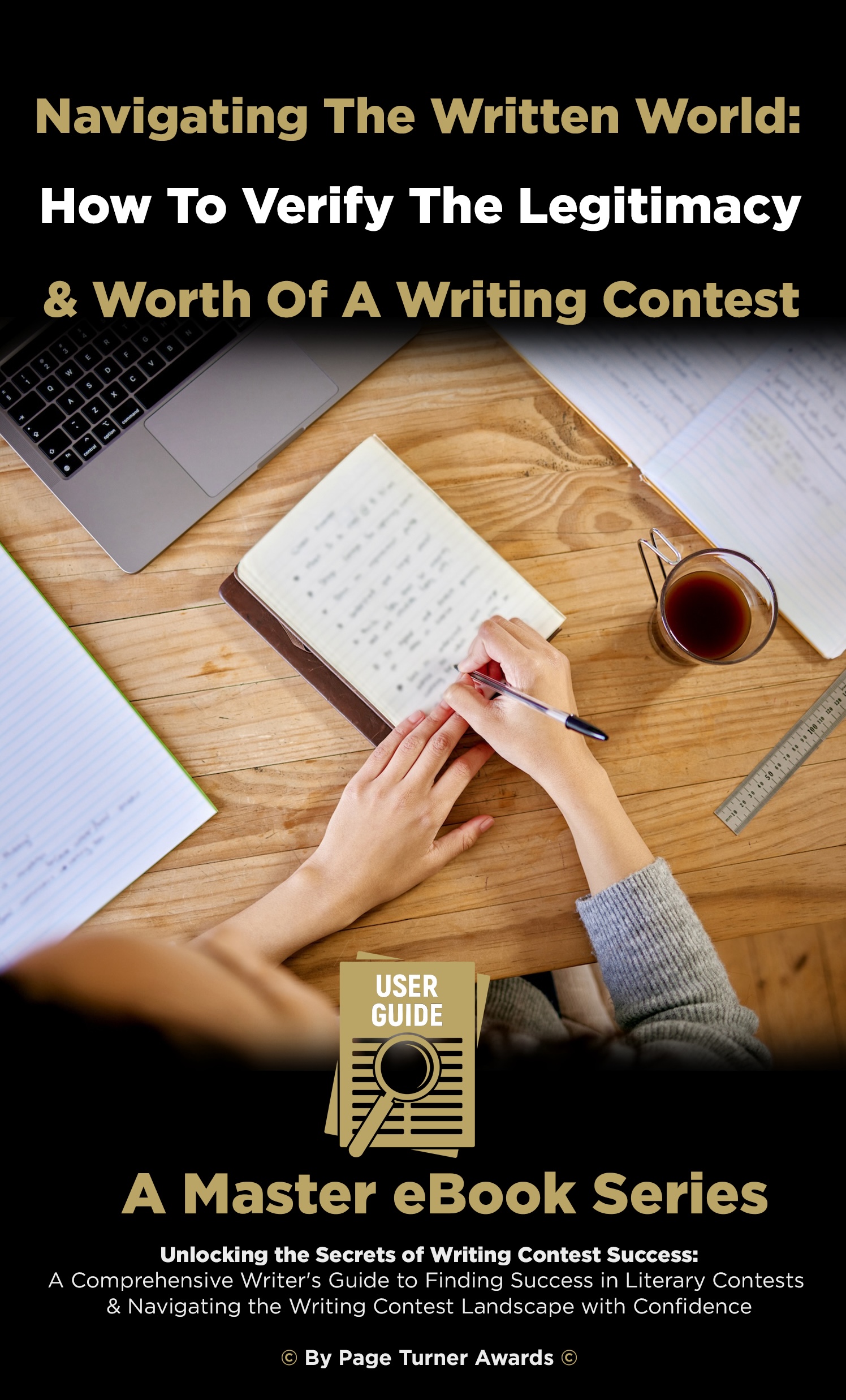
Navigating The Written World: How To Verify The Legitimacy And Worth Of A Writing Contest
In the realm of writing competitions, aspiring authors embark on a quest to capture the attention and admiration of esteemed judges. Winning over these discerning critics requires a meticulous approach that elevates your writing to the highest standards.
In the realm of writing, aspiring authors often encounter a plethora of contests, each promising recognition, prizes, and opportunities for professional advancement. However, amidst this plethora, it's crucial to exercise caution and discerning judgment to ensure you're not wasting your time or money on a scam or low-quality contest.
Here's a comprehensive guide to verifying the legitimacy and worth of a writing contest before you submit your hard work:
1. Research the Contest Organizers:
Check for Transparency: Legitimate contest organizers will provide clear and detailed information about themselves, including their history, mission, and contact information.
Avoid Incomplete or Vague Information: If the contest organizers offer limited or incomplete information about themselves, this could be a red flag.
Established Reputation: Reputable organizations with a proven track record of hosting successful writing contests typically have a strong online presence and positive feedback from past participants.
2. Scrutinize the Contest Rules and Guidelines:
Examine Submission Fees: Be wary of contests with exorbitant submission fees, as these may be a sign of a scam or a contest that prioritizes profit over the quality of submissions.
Review Eligibility Requirements: Verify that you meet all the eligibility criteria, such as genre, word count, and age restrictions.
Avoid Unreasonable Deadlines: Legitimate contests typically have reasonable deadlines to allow writers ample time to prepare their submissions.
3. Check Online Reviews and Feedback:
Consult Online Forums and Writing Communities: Engage with other writers and seek their opinions on the contest's legitimacy and reputation.
Read Past Participants' Feedback: Online reviews and feedback from past participants can provide valuable insights into the contest's organization, judging process, and overall experience.
Beware of Negative Reviews: While some negative reviews may be isolated incidents, a pattern of complaints could indicate a problem with the contest's integrity.
4. Validate the Judging Panel:
Verify the Expertise of Judges: Legitimate contests often have a panel of esteemed judges with established credentials in the literary field.
Assess the Judges' Experience: Check the backgrounds and accomplishments of the judges to ensure they have the necessary expertise to evaluate your work fairly.
Question Unfamiliar Judges: If the contest features judges with limited or no known experience in the relevant genre or style, be cautious.
5. Evaluate the Prizes and Opportunities:
Assess the Value of Prizes: Determine if the prizes offered are commensurate with the effort and time required to submit your work.
Consider the Credibility of Publishers or Agents: If the contest promises publication or representation deals, research the publishers or agents involved to ensure they are reputable and have a track record of success.
Distinguish between Real and Fake Opportunities: Beware of contests that offer unrealistic or overly lucrative prizes, as these may be scams.
6. Exercise Caution with Requests for Personal Information:
Beware of Unusual Requests: Legitimate contests should only require basic contact information and submission details.
Avoid Sharing Sensitive Information: Refrain from sharing personal financial information or passwords with contest organizers.
Trust Your Instincts: If something feels off or suspicious, walk away from the contest.
7. Seek Professional Guidance:
Consultation with Writers' Organizations: Contact reputable writing organizations or associations for advice on verifying contest legitimacy.
Seek Consultation with Experienced Writers: Reach out to experienced writers in your genre or style for their insights into the contest's reputation.
Seek Legal Counsel: If you have concerns about a particular contest, consult with an attorney to assess the potential risks and legal implications.
Remember, entering writing contests can be an enriching experience that can help you gain recognition, enhance your skills, and connect with other writers.
By exercising due diligence and following these guidelines, you can ensure you're investing your time and effort in high-quality and legitimate contests that have the potential to advance your writing career.


